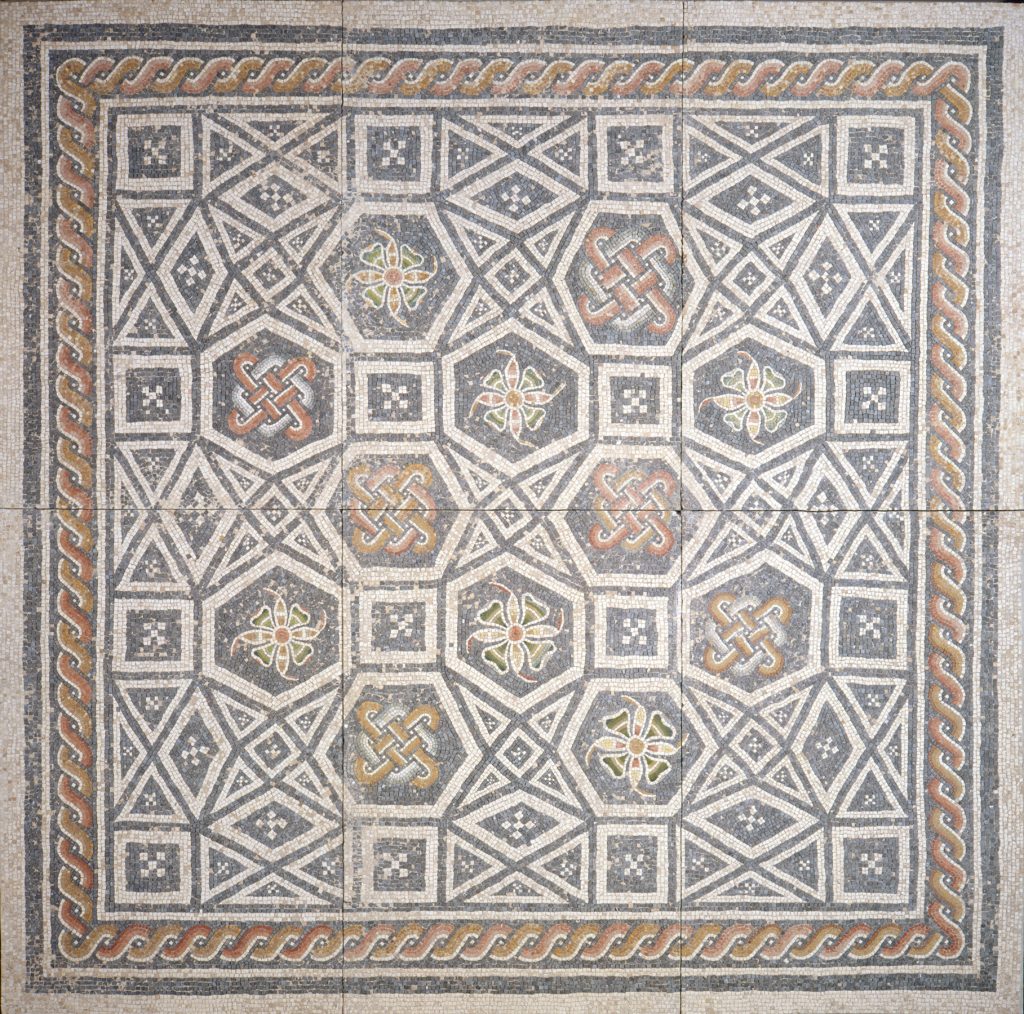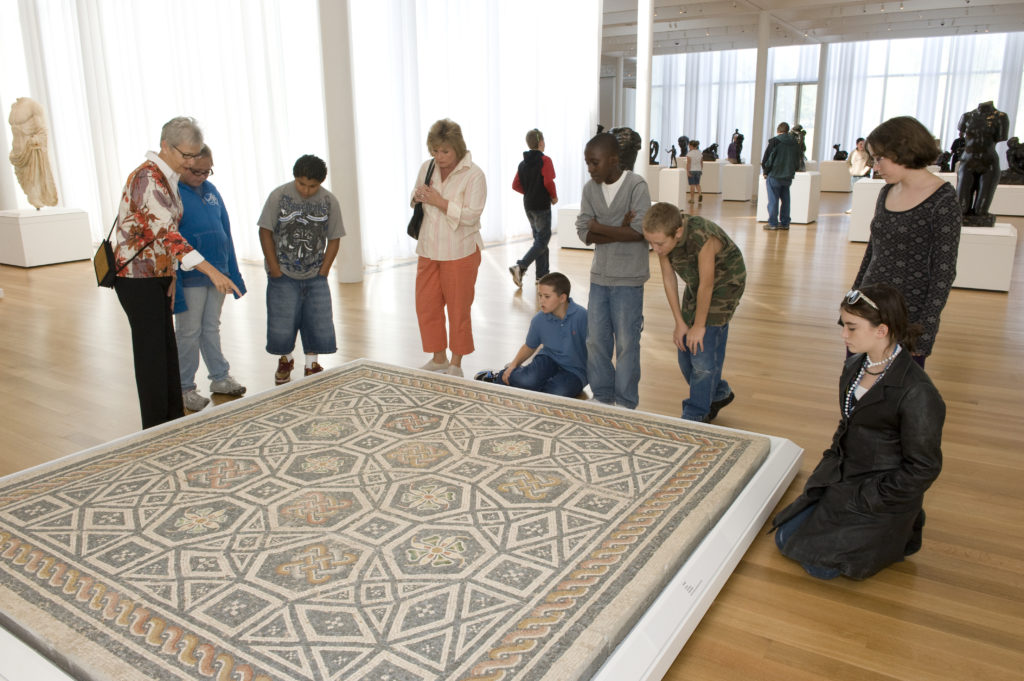Mosaic (work of art)
Artwork Info
About
Key Ideas about this Work of Art
- Mosaics were important symbols of wealth and social status in Roman houses.
- This mosaic was most likely placed in a small room inside a home or bath house. It could also have been part of a larger mosaic that decorated a dining room or reception hall.
- This mosaic was made with white marble tiles and colorful glass pieces called tesserae (the plural form of tessera). Tesserae are usually small, square tiles used in mosaic work. This mosaic features interwoven squares and flower designs that are framed by a geometric pattern.
Learn More
Houses for Roman citizens were more than places to eat and sleep. They were also places for conducting important business and maintaining social and political connections. To impress their guests, wealthy Roman citizens decorated their homes with delicately designed mosaic floors. This mosaic does not have a focal point in its design. This makes it difficult to determine what type of room or structure it may have decorated. The mosaic’s size suggests that it may have covered the floor of a small room inside a home or a bath house. It is also possible that this mosaic was part of a larger piece that decorated a dining room or reception hall.
Early mosaic production was simple and practical. Craftspeople used pebbles to create a durable surface. By the fourth century BCE, a variety of colored stones and decorative patterns were used in mosaic work. Roman artists invented a technique that made mosaics look more like paintings. This involved using tesserae, which are small, square pieces of cut stone, glass, or tile.
This mosaic is an example of the creative use of tesserae. The artist created it by arranging white marble tiles and colorful glass pieces into symmetrical patterns. The mosaic’s design includes six geometric shapes (called Solomon’s knots) that are each enclosed in a hexagon and framed by a pattern called simple guilloche.
tags: function, pattern, shapes, math, geometry, order, part/whole, place, variation
Additional Resources
Resources for Teachers:
- Watch a video to see how Roman mosaics were made.
- Read an article about a typical Roman atrium house and learn how it was used to reflect the owners’ social status.
- Explore a website dedicated to the study of Roman mosaics.
Resources for Students:
- Learn some key facts about Roman mosaics.
- Watch a video about Mosaic.
- Watch a video about four young women in ancient Rome.


